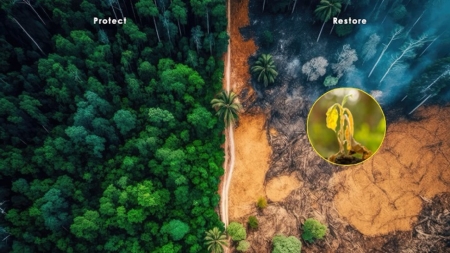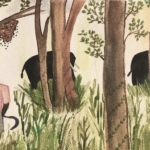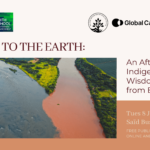Global Ecological Shift: for the protection and restoration of biodiversity – Thomas Crowther
Thomas Crowther
- Start Thursday 02 May 2024 5:00pm
- Finish Thursday 02 May 2024 6:00pm
- Venue School of Geography and Environment Lecture theatre
- Watch seminar recording (external site)

Abstract: Ecologist Thomas Crowther underscores the vital role of nature conservation and restoration in combating biodiversity loss and climate change. In his talk, Crowther will highlight recent scientific advancements, such as the groundbreaking evaluation of global forest carbon potential, and the launch of the SEED, a biocomplexity index, which enables us to understand the variation in biological health across the globe. These initiatives aim to enhance our commitment to nature and empower individuals, companies and governments to make positive contributions towards biodiversity conservation. Through collective action and informed stewardship, Crowther inspires hope for a sustainable future where nature thrives alongside humanity.
Biography:
Thomas Ward Crowther is a professor of ecology at ETH Zürich and co-chair of the advisory board for the United Nations Decade on Ecosystem Restoration. At ETH Zürich, he started Crowther Lab, an interdisciplinary group of scientists exploring the role of biodiversity in regulating the Earth’s climate. Crowther is the founder of Restor, an online platform that provides connectivity, and transparency to thousands of conservation and restoration projects around the world. He also founded SEED, a biodiversity monitoring tool to help measure the health of nature across the globe. He was selected in the final cohort for Prince William’s Earthshot Prize, and was selected by World Economic Forum as a Young Global Leader for his work to promote nature
The Leverhulme Centre for Nature Recovery and Biodiversity Network are interested in promoting a wide variety of views and opinions on nature recovery from researchers and practitioners.
The views, opinions and positions expressed within this lecture are those of the author alone, they do not purport to reflect the opinions or views of the Leverhulme Centre for Nature Recovery/Biodiversity Network, or its researchers.


